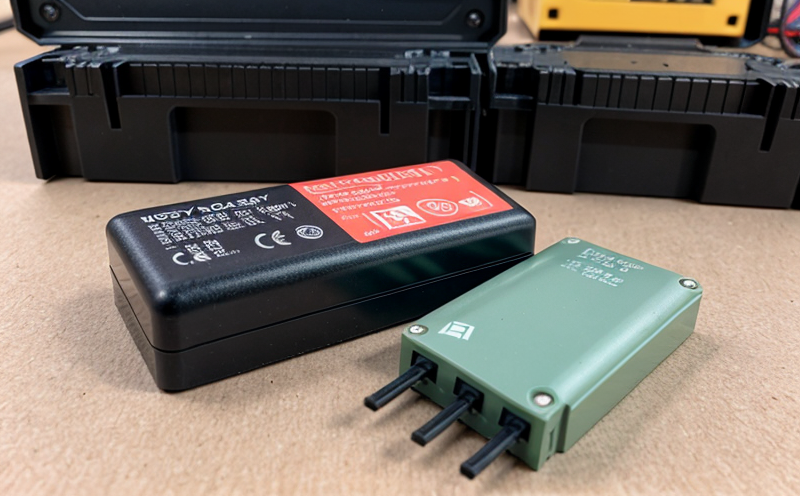KS C IEC 62259 Nickel-Cadmium Battery Pack Performance Testing
The KS C IEC 62259 standard provides a comprehensive approach to ensuring the safety and performance of nickel-cadmium (NiCd) battery packs used in various applications. This test is critical for quality managers, compliance officers, R&D engineers, and procurement teams aiming to ensure that their products meet stringent international standards.
NIChM batteries are widely used in consumer electronics, medical devices, and emergency equipment due to their high energy density and reliability under severe conditions. However, to ensure these batteries perform reliably over time, they must undergo thorough testing according to the KS C IEC 62259 standard. This test evaluates several key parameters including charge retention, cycle life, temperature range compatibility, and self-discharge rates.
The process involves several steps: initial charge verification, capacity measurement under specified conditions, performance evaluation during cycling tests, and final discharge testing. Each step is designed to simulate real-world usage scenarios that batteries encounter in different environments. For instance, the cycle life test simulates repeated charging and discharging cycles to assess how many times a battery can be recharged before its performance degrades.
During these tests, the laboratory uses sophisticated equipment such as programmable charge-discharge benches and temperature-controlled chambers. These tools allow for precise control over environmental conditions and ensure accurate measurement of all relevant parameters. The results of each test are meticulously documented and compared against the specified acceptance criteria outlined in KS C IEC 62259.
Compliance with this standard ensures that battery packs meet rigorous safety requirements, including those related to thermal stability, mechanical integrity, and electrical connections. This testing not only protects end-users but also helps manufacturers maintain a positive reputation for product quality and reliability. By adhering to these stringent guidelines, companies can enhance customer trust while ensuring their products comply with international regulations.
Understanding the implications of non-compliance is crucial; failure to meet the specified criteria could lead to product recalls, legal issues, and reputational damage. Therefore, investing in thorough testing according to KS C IEC 62259 is not only a regulatory requirement but also a business necessity.
| Applied Standards | Description |
|---|---|
| IEC 62259:2013 | International Electrochemical Commission standard for nickel-cadmium battery packs. |
| Korean Standard (KS C) equivalent | National standard aligned with IEC standards for Korean markets. |
Applied Standards
| Standard | Description |
|---|---|
| IEC 62259:2013 | This standard specifies the requirements and test methods for nickel-cadmium battery packs. It covers aspects such as charge retention, cycle life, self-discharge rates, and temperature range compatibility. |
| Korean Standard (KS C) | The Korean equivalent of IEC 62259 ensures compliance with international standards in the local market. |
These standards provide a framework for testing that guarantees consistent results across different laboratories and regions. Adherence to these guidelines ensures that nickel-cadmium battery packs are safe, reliable, and perform optimally under various conditions.
Why Choose This Test
- Promotes product safety by ensuring compliance with international standards.
- Enhances reputation among customers who value reliability and quality.
- Aids in regulatory compliance, reducing the risk of legal issues.
- Guarantees consistent performance across all batches of manufactured products.
The KS C IEC 62259 test is essential for ensuring that nickel-cadmium battery packs meet stringent international safety and performance requirements. By choosing this comprehensive testing protocol, manufacturers can enhance their brand’s reputation while reducing the risk of product failures or recalls due to non-compliance.
Quality and Reliability Assurance
- Initial charge verification ensures that batteries are correctly charged before testing.
- Cycle life tests assess how many times a battery can be recharged without significant performance degradation.
- Self-discharge rate measurements evaluate how quickly the battery loses its charge when not in use.
- Temperature range compatibility tests determine if the battery operates effectively within specified temperature ranges.
The results of these tests are critical for quality assurance as they provide clear evidence regarding the performance and longevity of nickel-cadmium battery packs. Regular testing helps identify potential issues early, allowing manufacturers to address them proactively before they become significant problems.





